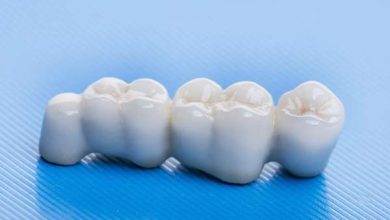Why is a Dental Bridge Not Recommended: Uncovering the Hidden Risks

A dental bridge is not recommended due to the potential for decay and misalignment of teeth, which can degrade the underlying bone integrity. The bridge may also cause discomfort, gum irritation, and inflammation if not fitted correctly.
It can lead to hygiene problems as it requires special cleaning instructions and does not allow normal flossing, increasing the risk of plaque buildup and decay. Dental implants are considered a better alternative to bridges in terms of functionality and aesthetics.
Risk Of Decay
|
Potential for decay due to difficulty in proper cleaning |
A dental bridge is not recommended due to the potential for decay caused by difficulty in proper cleaning. The space between the bridge and the gums can make it challenging to effectively clean the area, leading to an increased risk of decay compared to dental implants. Additionally, the presence of the bridge can create a space where bacteria can accumulate and cause decay. While a bridge can help prevent teeth from sinking into the gap, it may still be more susceptible to decay compared to implants. It is important to take proper care of dental bridges and follow special cleaning instructions to minimize the risk of decay.

Credit: www.umc.edu
Negative Impact On Adjacent Teeth
Damage to healthy teeth due to crown preparation
Traditional bridges require putting crowns over perfectly healthy teeth. Maryland bridges can cause damage to the existing teeth.
The bridge doesn’t fit correctly, it can cause discomfort and gum irritation. The healthy abutment teeth on either side of the gap that hold the pontic in place may become damaged in some cases.
The space created by the bridge can cause teeth to become misaligned and degrade the integrity of the underlying bone. Bone loss will continue with a dental bridge, which could eventually lead to facial collapse and a weakened bite.
Possible Discomfort And Gum Irritation
Dental bridges are not recommended due to the potential for discomfort and gum irritation. They can also lead to tooth misalignment and degradation of the underlying bone. Compared to implants, bridges have a higher risk of decay and can cause hygiene problems.
Overall, implants offer better functionality and aesthetics than bridges.
| Possible Discomfort and Gum Irritation |
| Dental bridges are not recommended due to the possible discomfort and gum irritation they may cause. Ill-fitting bridges can lead to discomfort in the mouth, making it difficult to eat or speak properly. The false tooth of the bridge may also cause boils and gum recession if not properly aligned. Additionally, the bridge can make it challenging to maintain proper oral hygiene and may require special cleaning instructions. This can increase the risk of plaque accumulation, which can lead to decay or gum disease. Overall, dental bridges can pose several issues, making them less preferable compared to other options such as dental implants that provide a more secure and comfortable solution for missing teeth. |
Frequently Asked Questions For Why Is A Dental Bridge Not Recommended
What Is The Downside Of A Dental Bridge?
The downside of a dental bridge is that there is a potential for decay and the bridge can cause teeth misalignment and weaken the underlying bone. If the bridge doesn’t fit correctly, it can cause discomfort, gum irritation, and other problems like gum recession.
The bridge also requires special cleaning instructions, increasing the risk of plaque buildup and gum disease. Implants are considered better than bridges in terms of functionality and aesthetics.
Why Is A Doctor Prefer Bridge Over Implant?
A dental bridge is preferred by doctors over an implant because it is a less invasive procedure and requires no surgical intervention. Additionally, bridges can be a more cost-effective option for patients with missing teeth. However, bridges may have a slightly higher risk of decay and can cause issues with hygiene and gum disease if not properly maintained.
Can Dental Bridges Cause Problems?
Yes, dental bridges can cause problems like decay and misalignment of teeth. They may also cause discomfort and gum irritation if they don’t fit correctly. Additionally, bridges can be more difficult to clean, increasing the risk of plaque buildup and gum disease compared to individual crowns or implants.
It is important to consider these potential issues when deciding on a dental procedure.
What Is Better Than Dental Bridge?
Implants are better than dental bridges. Implants offer better functionality and aesthetics. Consider your specific requirements when deciding between the two procedures.
Conclusion
To conclude, while dental bridges can be a solution for missing teeth, there are some drawbacks to consider. The potential for decay is higher compared to implants, and the bridge may cause discomfort, gum irritation, and even damage to existing teeth.
Additionally, maintenance and hygiene can be challenging, with plaque buildup and the need for special cleaning instructions. Considering all these factors, it is important to weigh the pros and cons and consult with a dental professional to make an informed decision about the best treatment option for your individual needs.





